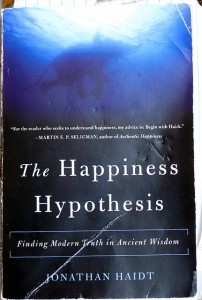Measuring subjective happiness
In the January 29, 2010 issue of Science (available online only to subscribers), Richard Layard considers whether subjective reports are valid ways of measuring the well-being of a population. After all, we've been hearing some rather extraordinary findings of studies over the years based upon subjective happiness. For instance, studies consistently show that higher national income does not increase "quality of life," (defined by subjective happiness). In fact, based on studies relying on subjective judgment, there has been no increase in happiness over the past 50 years in the United States. Layard asks a fundamental question: "Can subjective well-being really be measured well enough to be used in policy analyses?" Even though the science of measuring happiness is "very young," Layard indicates that subjective measures of happiness are well correlated with at least five relevant sets of variables:
The reports of friends; the possible causes of well-being; some possible effects of well-being; physical functioning, such as levels of cortisol; and measures of brain activity.
There is good reason to be optimistic that we will get better at measuring happiness. "Fifty years ago, there was considerable debate on how to measure depression, but by now this has become much less controversial in all likelihood, the measurement of happiness will become similarly less controversial." As we fine-tune our methods of measuring of subjective happiness, Layard believes we will be better able to monitor trends of happiness, we will deal to identify problem groups within populations and we will be better able to determine why some people are happy and others are not. Better measurements will certainly allow us determine quality of life better than the many efforts to do so in terms of money. What's at stake according to Layard? As we leave behind our crude financial measurements of the quality of life and continue to develop better methods of measuring subjective happiness, "it will produce very different priorities for our society."

